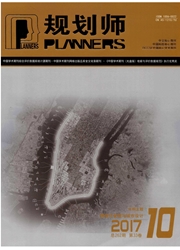

 中文摘要:
中文摘要:
城市化是中国社会经济发展的关键与核心,但20世纪90年代以来中国城市化发展侧重于“短期内的经济绩效”,城市社会、经济、生态及城市安全等日趋“脆弱”,这种基于“脆弱性”的城市化模式亟待转型,走向健康城市化;和谐城市是中国城市化健康发展的核心,制度尤其是城市规划制度的创新是落实科学发展观和建设和谐城市的重要举措。原本作为一种“公共政策”存在的城市规划长期偏重于物质工程技术,追求经济效率和工具理性,漠视社会和谐和价值理性,应通过培育市民社会、建立政府财政预算质询与监管机制、强化社区规划及实施区域规划的财政税收保障制度等新举措促进城市规划的转型。
 英文摘要:
英文摘要:
Urbanization is the core of the Chinese socio-economic development, which is important for the solution of rural-urban harmonious development, enlarging domestic demands, promoting the living quality. But the city govemment has focused on the GDP incensement ignoring the long-term sustainability since 1990. Urban economy, society, ecology and safety etc. became more and more vulnerable. It's necessary to transit the older urbanization model and build a healthful model through constructing humanism city. On the other hand, city planning paid too much attention to the physical space, economic efficiency and lost its responsibility of maintaining the public benefit, struggling for the lower group. So under the challenging situation, such as globalization, rural-urban migration, market reform, city planning had to be regulated to suit for the serious urban problems. Considering the huge inertia of the administration system, it would be effective to permit the public, especial the NGO, to participate in and supervise the urban planning, to inquire the use of city finance.
 同期刊论文项目
同期刊论文项目
 同项目期刊论文
同项目期刊论文
 期刊信息
期刊信息
